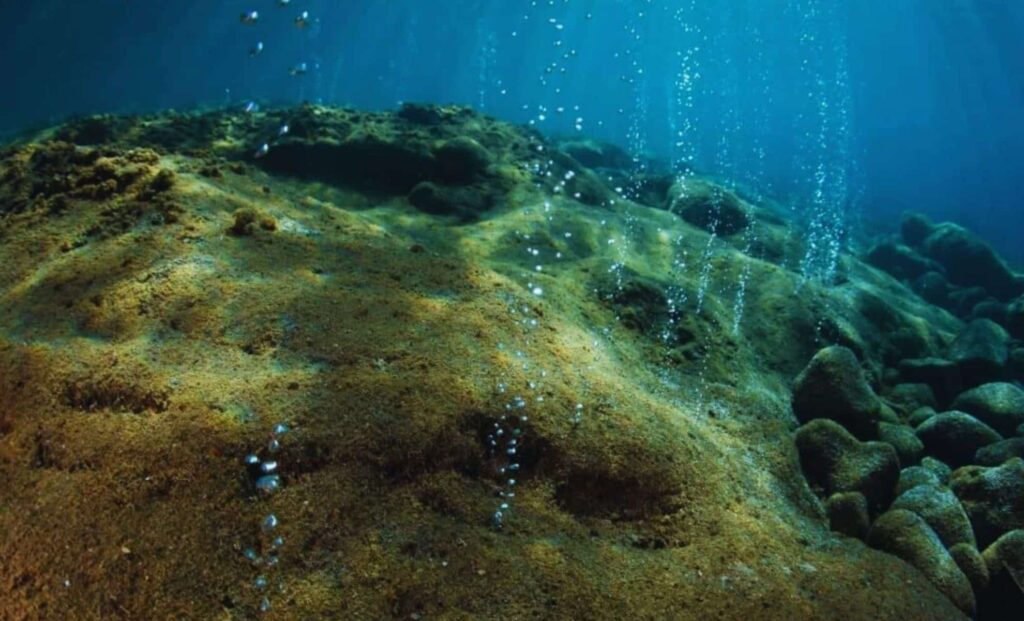A remarkable discovery off the coast of Vancouver Island has revealed something scientists never expected: thousands of giant, living eggs in an underwater volcano.
The eggs belong to the Pacific white skate, a species typically found in deep, cold waters. This unexpected finding challenges previous assumptions about the environment around the volcano and its ability to support life.
An Active Underwater Volcano
For years, the underwater volcano near Vancouver Island was believed to be extinct, with surrounding waters too cold and barren to support much marine life.
However, during a 2019 expedition led by marine biologist Cherisse Du Preez from Fisheries and Oceans Canada, researchers discovered that the volcano is still active.
The seamount, which rises nearly 3,600 feet (1,100 meters) from the ocean floor, emits warm, mineral-rich water, providing a habitat for a variety of marine species. This discovery completely altered the scientists’ understanding of the region.
The Mystery of the Giant Eggs
One of the most surprising aspects of the discovery was the large number of giant eggs found on the summit of the seamount. These eggs, known as “mermaid purses” due to their distinctive shape, are about 1.5 feet (0.5 meters) across.
The eggs were found nearly a mile beneath the ocean’s surface, in waters that are warmer than those typically inhabited by the Pacific white skate. Researchers were amazed to find that the eggs were still alive, a rarity for deep-sea species.
The Role of Geothermal Heat
The geothermal warmth from the active volcano plays a critical role in the survival and development of these eggs.
The usual gestation period for the Pacific white skate’s eggs is about four years, but the warm environment provided by the volcano accelerates their development.
The volcano’s geothermal activity acts as a natural incubator, helping the eggs mature faster and improving the chances of survival for the young skates.
The Importance of Volcanic Environments
This discovery adds to growing evidence that deep-sea species may rely on volcanic and hydrothermal environments to incubate their eggs.
A similar discovery was made near the Galápagos Islands in 2018, where the warm waters of hydrothermal vents played a role in the incubation of skate eggs.
The findings suggest that volcanic habitats, like the one near Vancouver Island, are vital for the survival of certain deep-sea species.
With concerns about the potential threats posed by human activities like overfishing, researchers are committed to monitoring this fragile ecosystem.
Continued studies aim to better understand how volcanic environments help support deep-sea species and ensure these habitats are preserved.

